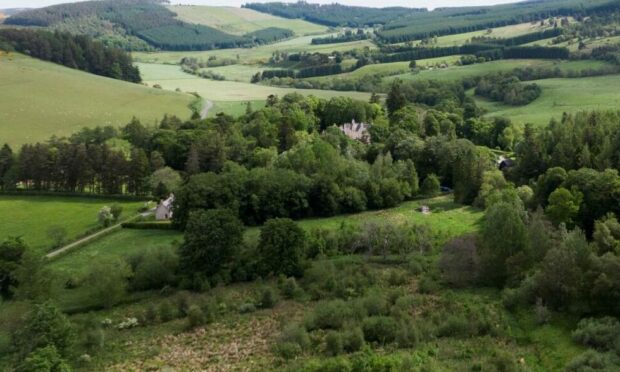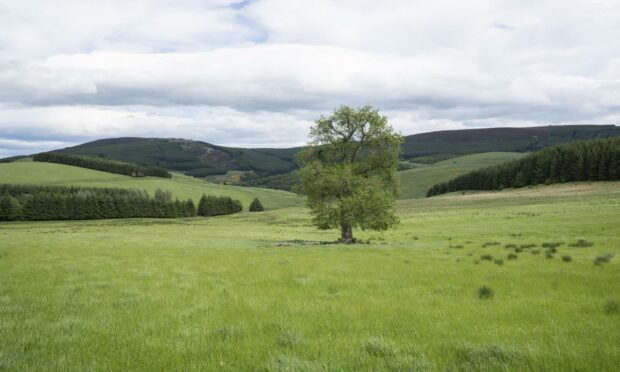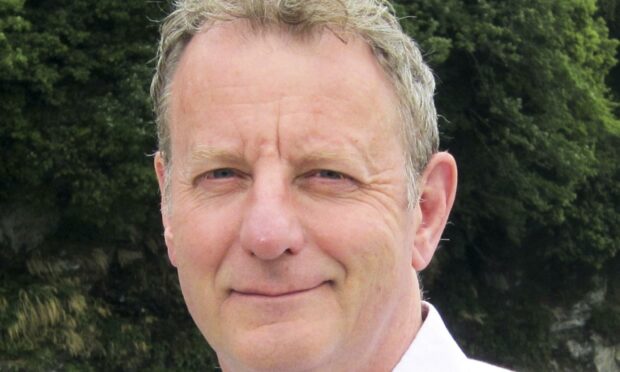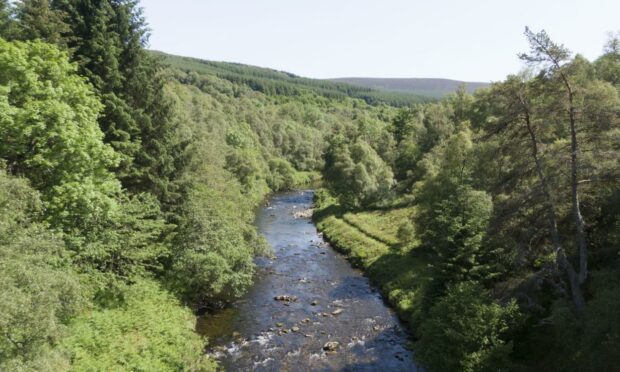An entrepreneur has bought a second estate in the north of Scotland as part of his ambitious plans to create a world-leading ‘open laboratory’ in the area.
Jeremy Leggett, founder of the solar energy company Solarcentury and former scientific director at Greenpeace, acquired the 1,262-acre Bunloit Estate near Loch Ness last year.
He has now added the 860-acre Beldorney Estate in Aberdeenshire and the two sites will work together on a major rewilding project.
Estate aims to help tackle climate and biodiversity crises
Dr Leggett said the aim is to create a “Scottish natural-capital verification-science open laboratory that leads the world on the measurement of recovery in the climate and biodiversity crises”.
He said Beldorney offers a “blank sheet” for rewilding aims, carbon sequestration and regenerative agriculture alongside plans for eco workshops and eco-friendly tourism as well as affordable housing.
He and the Bunloit Rewilding team hope to link up with Scottish research centres of excellence, including Aberdeen University which has one of the most established soil science centres in Europe.
“This prospect is already appealing to outside investors. So I hope to run an expanding project that can spread both rural employment and hope both locally and more generally.”
Dr Leggett added: “Beldorney is perfectly fit for purpose. It is 80 % pasture so we basically have a blank sheet to approach rewilding on.
We are hoping to do frontier stuff that will excite and inspire people
Jeremy Leggett
“We can take an experiment-based approach, divide it into lots and decide which versions of rewilding and agri forestry regenerative agriculture that we can bring to bear.
“Then we will monitor the heck out of it so we can provide the same kind of frontline science verification information that we are beginning to compile at Bunloit.
“We are hoping to do frontier stuff that will excite and inspire people.”
The River Deveron flows through the Beldorney estate and Dr Leggett said he hopes to work with other landowners along the river on a linked up riparian rewilding project.
The land also comes with a 15th century castle – “not essential for purpose”, said Dr Leggett – which will eventually be let out to parties of eco tourists.
“The same as Bunloit, we hope to move in the direction of bringing in people who want to have a staycation and are passionate about rewilding. People who want to get their hands dirty and help out on the land.”
It is planned to give the land a “rest” for up to a year before the project gets underway in earnest: “We will talk to locals and experts and come up with a plan.
Eco enterprises and affordable housing
“We won’t rush it even though the problems we are trying to address – climate and biodiversity – are not going to wait for anyone.
“We have to get the balance right. You can’t go charging about like a bull in a china shop with these things.”
He said if the project gets local support, it will ultimately plan to create eco enterprises and workshops as well as affordable housing.
Plans for Bunloit envisage mixing rewilding and repopulation. Alongside carbon sequestration, encouraging native tree species in woodlands, increasing pasture biodiversity, peatland restoration and new wildlife corridors, are proposals for new homes and businesses.
These include a bespoke wooden furniture manufacturer which plans to start a furniture school with an apprenticeship training scheme.
Sixteen houses, half of them affordable homes, and seven workshops could also be completed by the summer of 2023 if planning permission is gained.
A team of rangers has recently started work at Bunloit on deer management, tree planting, forestry, biodiversity and carbon surveys, as well as general estate maintenance.



